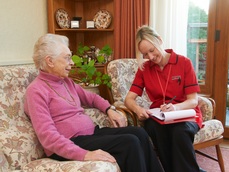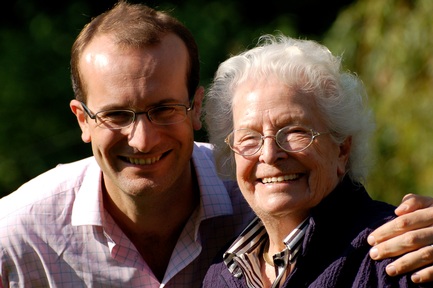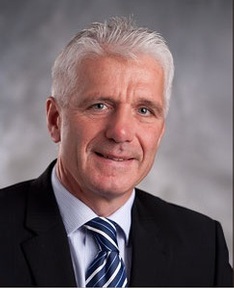Profile: 'It is ironic that we get free NHS care but few get a free home care service,' says Mears Group boss
A new report from the Health and Social Care Information Centre has revealed that 10 per cent fewer adults are receiving free home care compared to a year ago, showing the impact of budget cuts by local authorities.

Age UK claims that as local authorities continue to restrict eligibility for the people with highest needs ‘the situation looks bleaker than ever’. One answer, according to David Miles, chief executive of Mears Group, which specialises in home care support and social housing, is to integrate the budgets of health and social care as he claims the distinction between the two is “increasingly blurred”.
He says: “Given the need to reduce the burden on the NHS, I would like to see a pooling of the NHS and local authority budgets. As a country, I find it ironic that we get free NHS care but few get a free home care service.”
Time dependent
Home care has been a hot topic in the news lately with attention focussed on people being cared for in 15 minute time slots and home care workers not being paid for travel time which puts many on less than the national minimum wage.
In order to address these issues, Mr Miles says: “A systemic change is needed to improve terms and conditions for front line care workers, which is why we have been working with local authorities to address commissioning practices. The rates of pay for care workers are frequently decided by the rates set by our clients”.
In terms of restrictions on time with many home care workers forced to only give the bare minimum of care, he says “It’s not so much a question of 15-minute or 30-minute visits – the visits that should be abolished are any that are too short to keep our promise to the service user. Currently, there is a massive disconnect between what the customer needs and what the local authority can afford.”
He adds that “the basic issue is that the tasks commissioned are too many to fit into the time. This traditional type of commissioning does nothing to focus on re-ablement or quality of care which we believe are fundamental. We are pleased to see many local authorities are now looking at outcome based approaches.”
“We have been approached by a number of local authorities that have heard about our work on outcomes-based commissioning and are keen to work with us to change current practice and drive up the standards of care.”
Changing times
That change is finally afoot, Mr Miles believes, is evidenced by the actions of certain local authorities, and he cites what he regards as the excellent example of Wiltshire. “The Wiltshire Help to Live at Home service has integrated all the key components for independent living. The local authority has put the onus on providers to drive up quality of care so while Wiltshire works with the service user to define the key outcomes that they want to achieve, it is up to the provider and service user to determine how this is done in practice,” he says.
 “This allows a level of flexibility and personalisation that is not possible in standard contracts where care workers have to clock in and clock out and can’t deviate from a care plan that may have been written months earlier. Wiltshire’s approach has also recognised the vital work of front line care workers, and has resulted in a fully salaried work force and the creation of senior care workers.”
“This allows a level of flexibility and personalisation that is not possible in standard contracts where care workers have to clock in and clock out and can’t deviate from a care plan that may have been written months earlier. Wiltshire’s approach has also recognised the vital work of front line care workers, and has resulted in a fully salaried work force and the creation of senior care workers.”
Another challenge
As an employer of more than 16,000 home care workers, the Mears Group puts a premium upon motivating and training its workforce. Mr Miles believes that good training is an essential prerequisite for quality care. “Training is absolutely necessary – and there needs to be a clear minimum standard. Otherwise how can you put more value on looking after someone? How can you benchmark?
“We are crying out for an accredited standard for all care workers. It is remarkable that we have clear professional standards for say, plumbers and electricians, yet the standards required for care workers are a lot less rigorous.
“All Mears care workers have an extended induction to dementia and are encouraged to work towards a QCF diploma. It is also important that our care workers can have opportunities to progress, whether it be into the training team, quality assurance or managerial roles - there are lots of different opportunities open to our staff.
“We also have a number of schemes designed to recognise and reward the hard work of our care workforce. Our SMILE awards are available to any member of our care team who deserve recognition and we also have care worker of the month awards for those who have gone above and beyond.”
Long term, the way forward for the Mears Group, which also includes a social housing division, is to continue to expand its range of services available to keep up with the increasingly complex needs of the growing elderly population.
Mr Miles says: “At the moment Mears is concentrating on personal and domestic care but we would like to expand more into nursing care and maybe dementia care. This will help us to keep the customer for longer, as people get older and their needs become more complicated then we, the service provider, can fulfil those needs.”
Interesting Facts
First job: Trainee electrical engineer
Favourite book: Anything by the crime writer Peter James
Favourite film: Four Weddings and a Funeral – I love British comedies
Favourite piece of music: Anything by Keane
Best present received: A watch
Last holiday: Cornwall
Latest Profiles News
 01-Aug-19
Deal or No deal: Boris Johnson must protect care workforce says home care chief
01-Aug-19
Deal or No deal: Boris Johnson must protect care workforce says home care chief
 04-Dec-15
Former John Lewis director reveals why his home care company is employee owned
04-Dec-15
Former John Lewis director reveals why his home care company is employee owned
 17-Jul-15
Being a home care worker gives you the opportunity 'to make a real difference to someone’s life'
17-Jul-15
Being a home care worker gives you the opportunity 'to make a real difference to someone’s life'
 04-Mar-15
Home Instead boss calls for 'radical change' saying social care and health must be integrated
04-Mar-15
Home Instead boss calls for 'radical change' saying social care and health must be integrated
 02-Dec-14
Profile: ‘We do not do 15-minute visits’ says managing director of Right at Home
02-Dec-14
Profile: ‘We do not do 15-minute visits’ says managing director of Right at Home